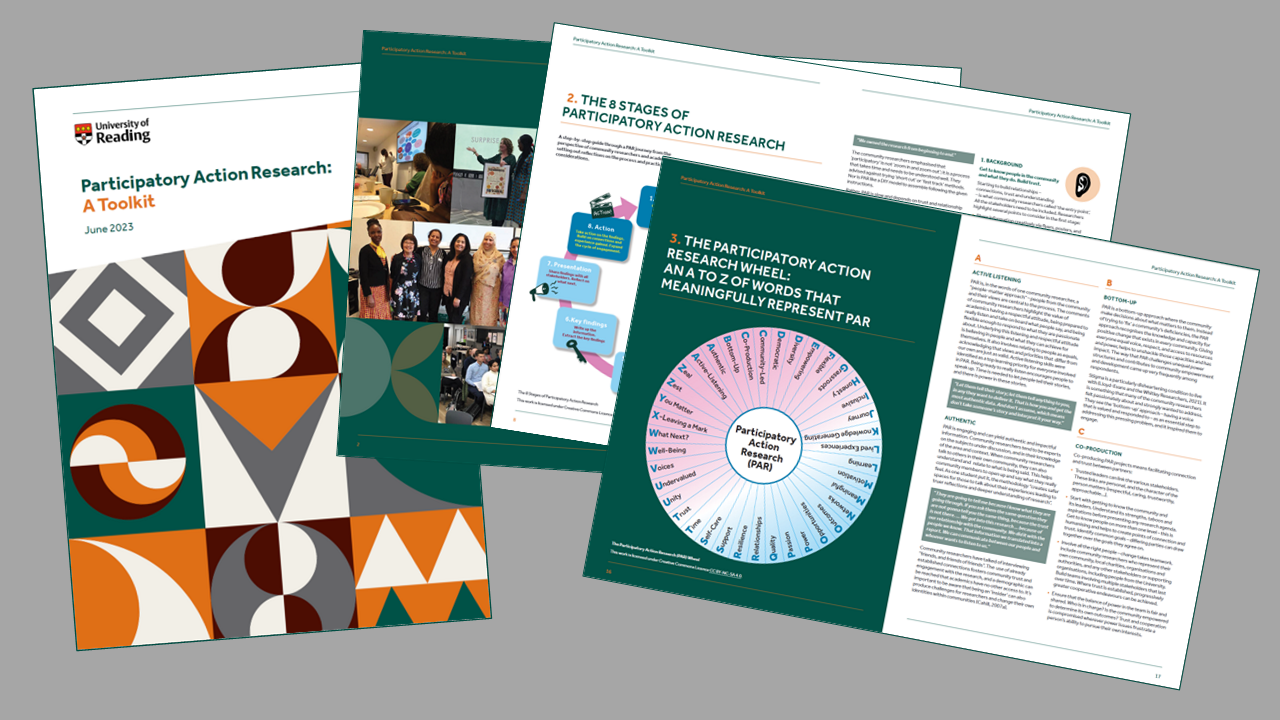We are delighted to launch Participatory Action Research: A Toolkit.
This toolkit is for community researchers, community organisations, students and academics who want to reflect on and better understand the principles and everyday practices of Participatory Action Research (PAR), how to build community research teams and how to use PAR to understand local issues.

The PAR Toolkit sets out reasons for taking the PAR approach and two practical tools:
The 8 stages of Participatory Action Research presents a step-by-step guide through a PAR journey from the perspective of community researchers and academics. The 8 Stages of PAR offers reflections on process and practical considerations, including:
- how to choose research topics geared to social change
- interactive and creative research methods
- recruiting participants
- building relationships and agreement
- collecting and analysing data
- presenting findings
- feeding back to participants
- taking action for social transformation.
The Participatory Action Research Wheel provides an A to Z of words that meaningfully represent PAR. The PAR Wheel is designed to start conversations about the benefits and challenges of the PAR process and what is needed to carry out PAR well.
In the video below, members of the team who created the PAR toolkit and community partners talk about words from the PAR wheel.
Opportunities for Participatory Action Research training and networking
The publication of the PAR Toolkit follows a local pilot training programme with University and community participants, and a Community-Led Research Networking Workshop. The networking workshop was held at the University of Reading in June, and attended by community researchers, academics, and representatives from a range of voluntary and statutory organisations. The keynote speaker was Steve Scott, the Public Engagement Lead for UKRI, who spoke on building a new relationship between research, innovation and society. There followed a rich and engaging programme of presentations and discussions about community-led research projects, including:
- Community-led research pilot with the British Science Association
- Developing the PAR Toolkit
- Tackling health inequalities in Reading: Community Participatory Action Research 2021–2022
- What do stakeholders need to know about anti-immigration attitudes?
- Food Systems Equality
- Engaging Environments
- Excellence in End-of-Life Care: making better memories
- Hidden Stories from Oxford Road
- LGBTQ+ Education
Find out more or get involved
- For more information about the PAR Toolkit please contact Dr Esther Oenga, Community Participatory Action Research (CPAR) Fellow at the University of Reading, by emailing e.k.oenga@reading.ac.uk.
- Download the toolkit here or from the University’s central archive, CenTAUR, here: https://doi.org/10.48683/1926.00113719.
